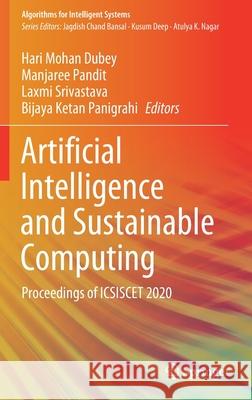Artificial Intelligence and Sustainable Computing: Proceedings of Icsiscet 2020 » książka
topmenu
Artificial Intelligence and Sustainable Computing: Proceedings of Icsiscet 2020
ISBN-13: 9789811612190 / Angielski / Twarda / 2021 / 478 str.
Kategorie:
Kategorie BISAC:
Wydawca:
Springer
Seria wydawnicza:
Język:
Angielski
ISBN-13:
9789811612190
Rok wydania:
2021
Wydanie:
2022
Numer serii:
000925819
Ilość stron:
478
Waga:
0.87 kg
Wymiary:
23.39 x 15.6 x 2.69
Oprawa:
Twarda
Wolumenów:
01
Dodatkowe informacje:
Wydanie ilustrowane











